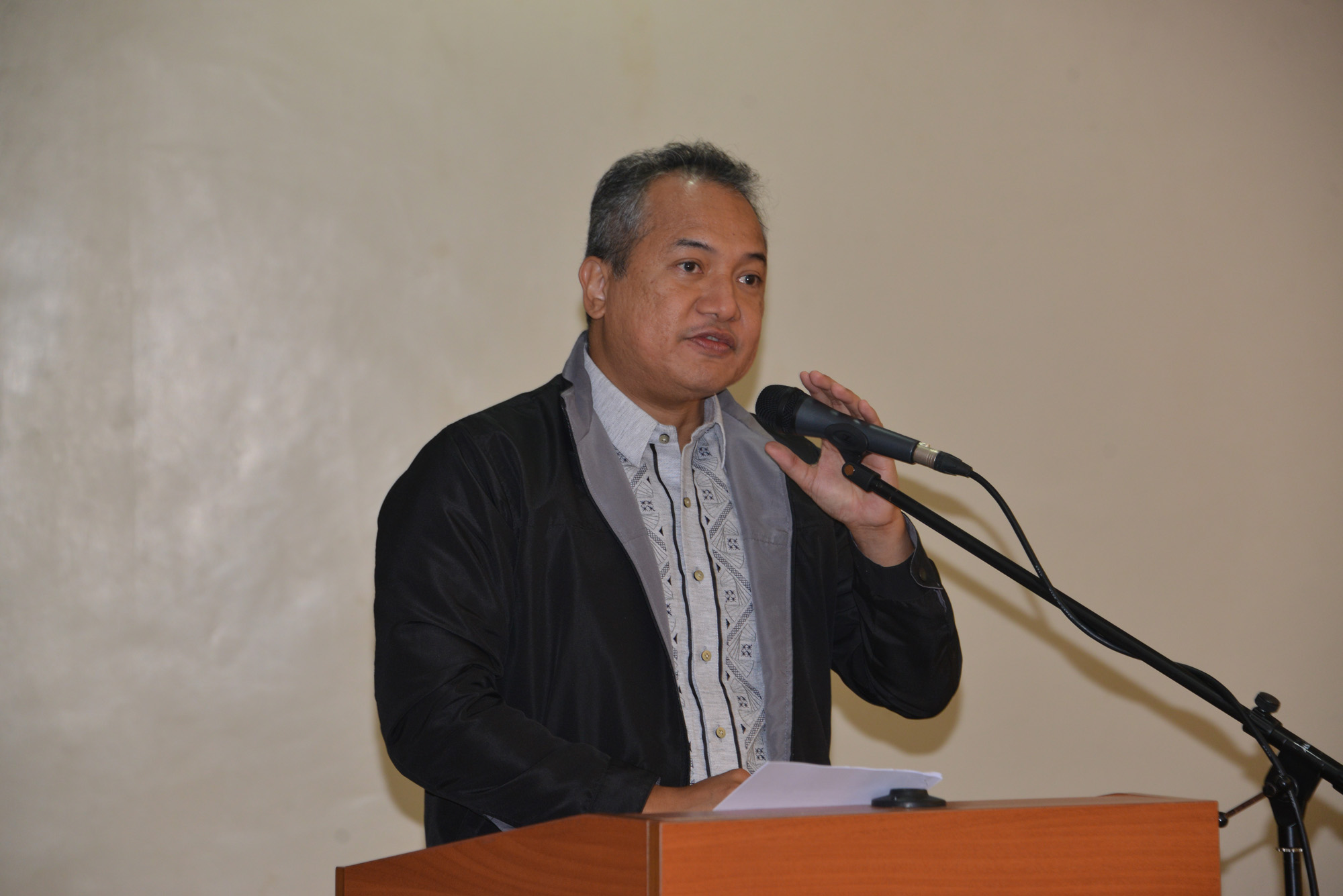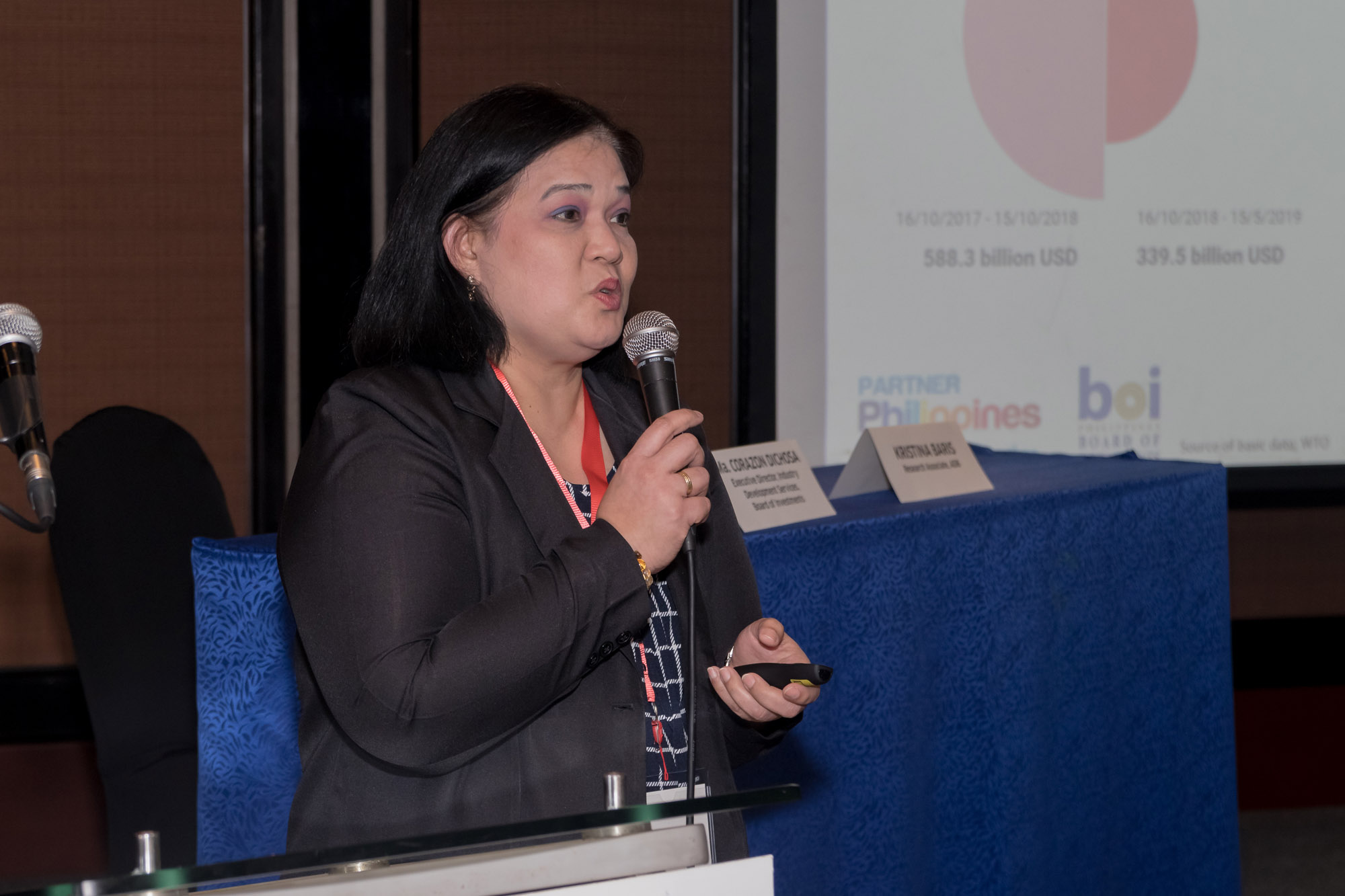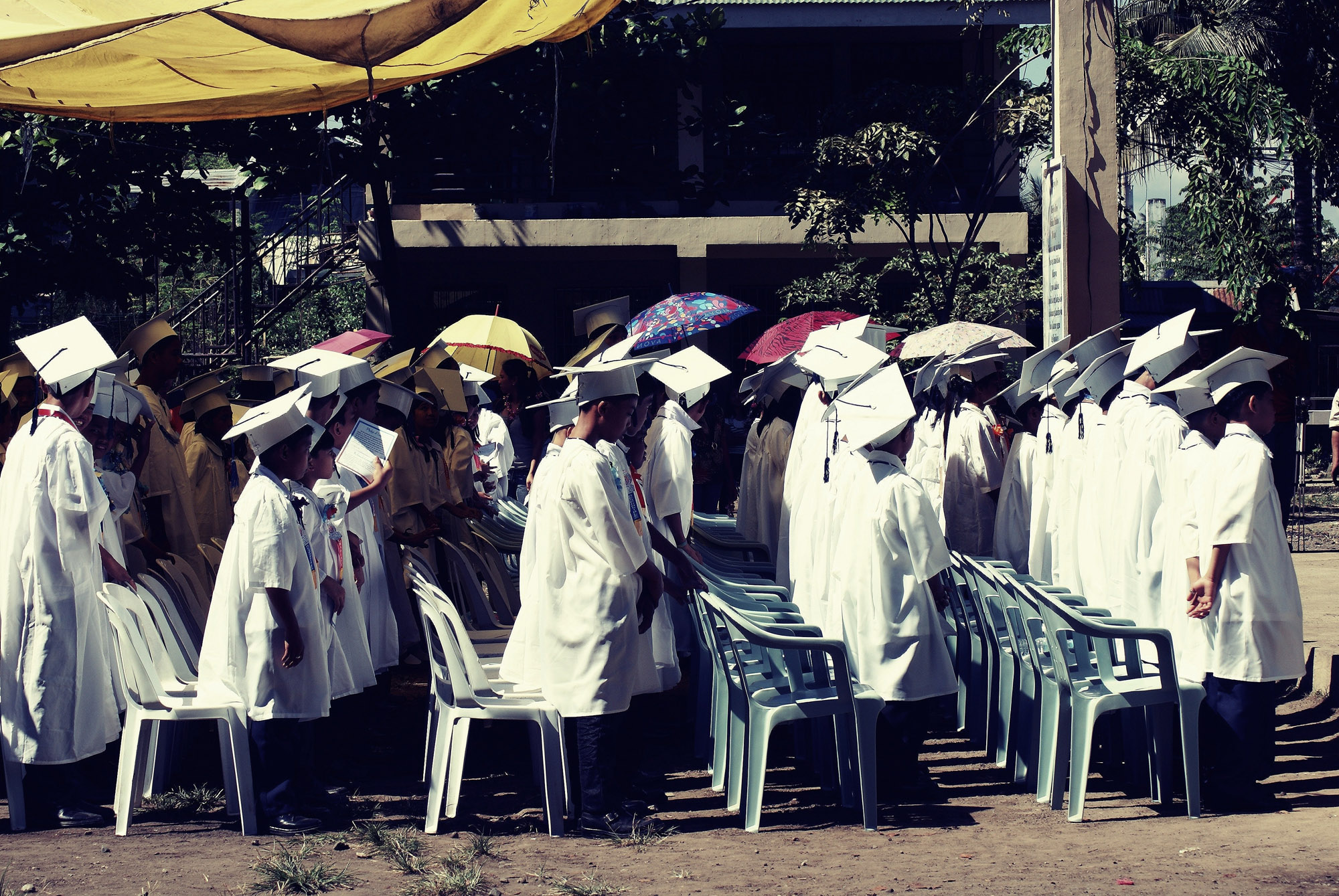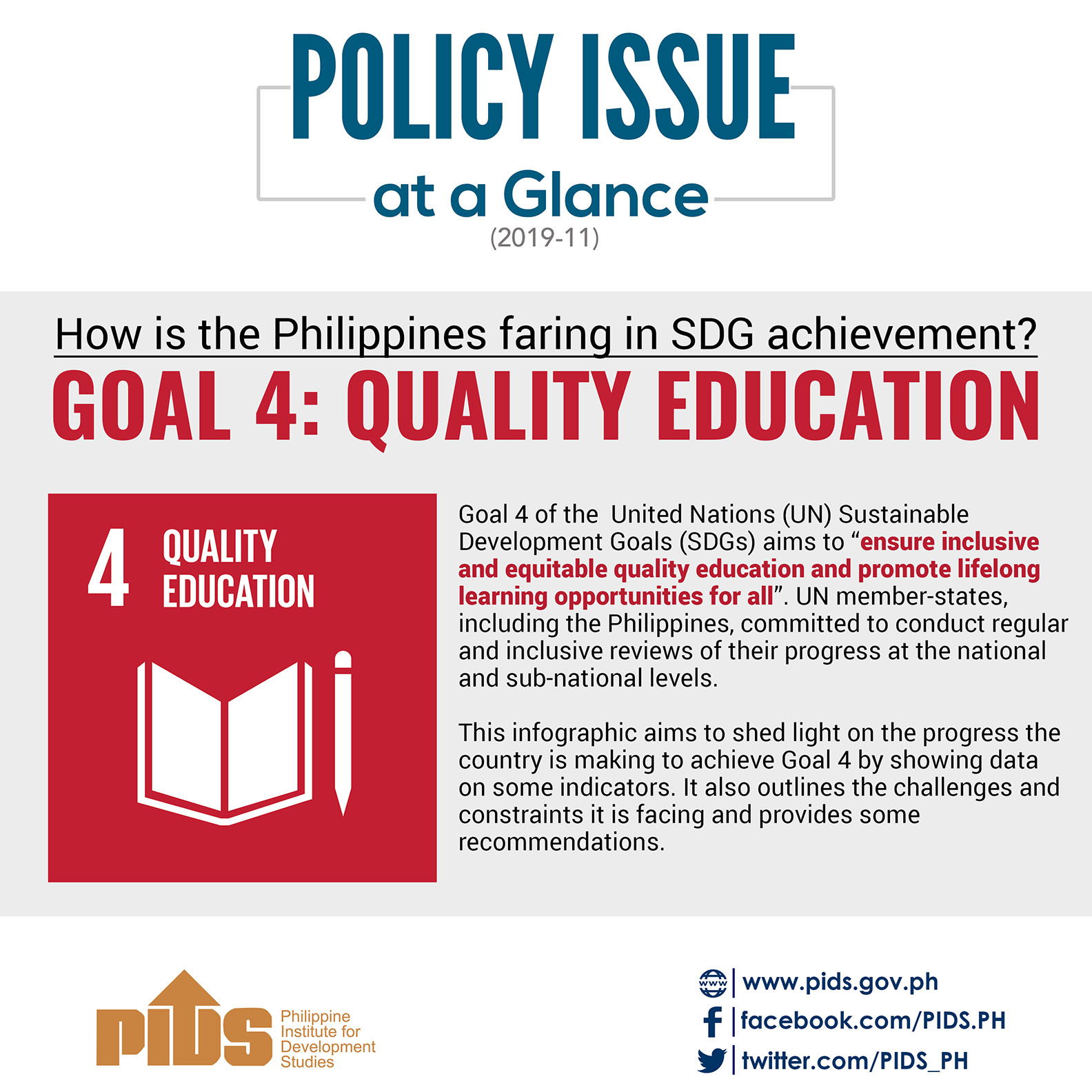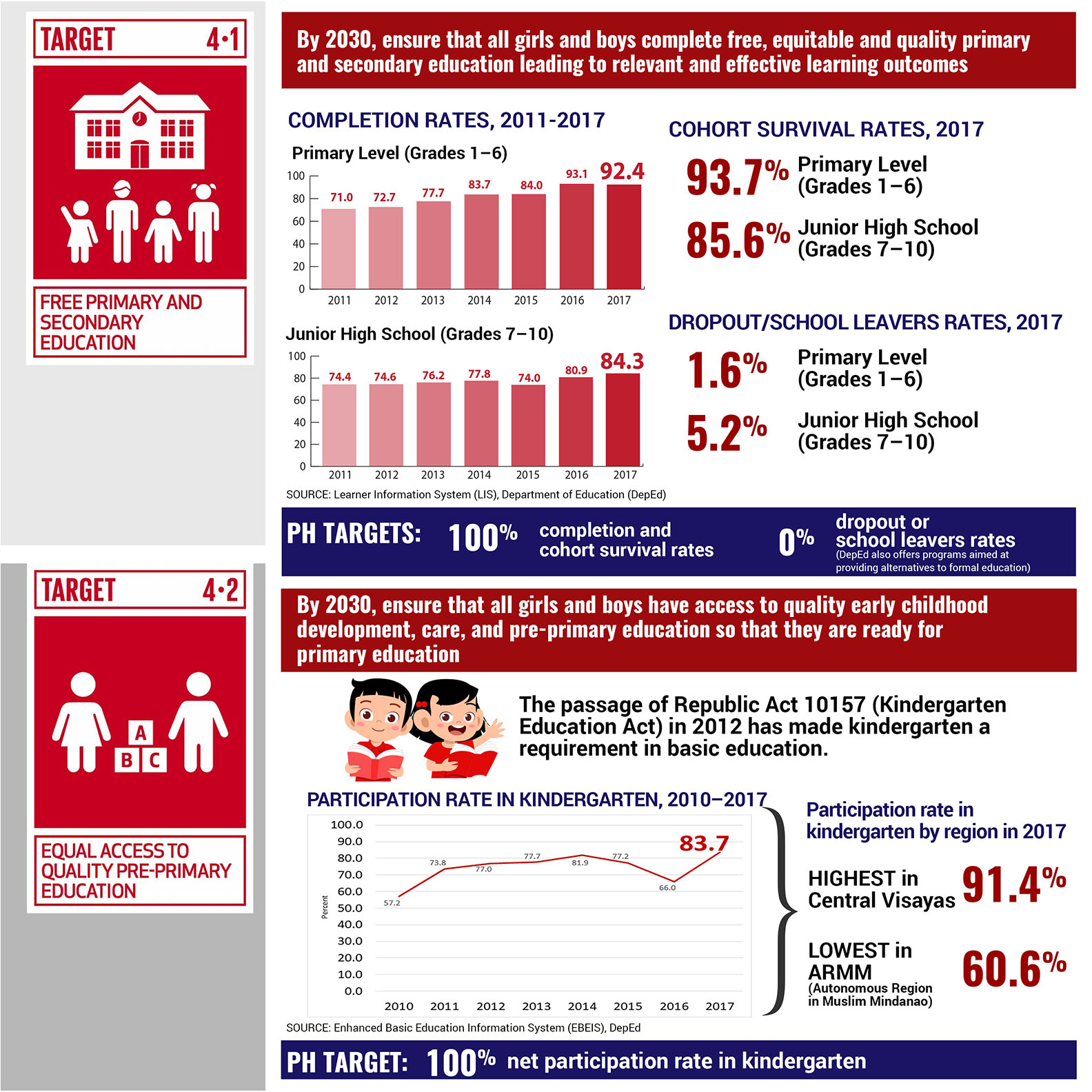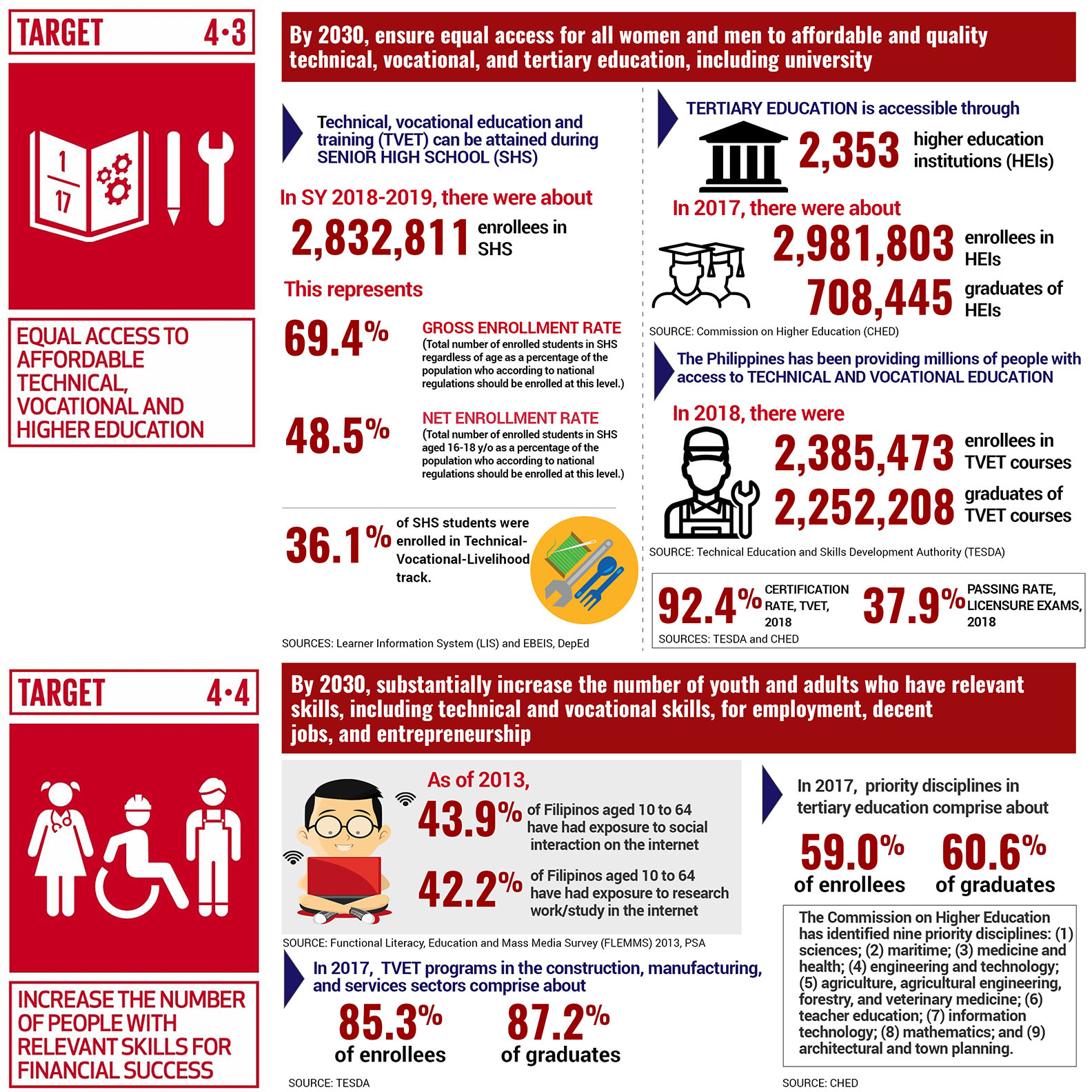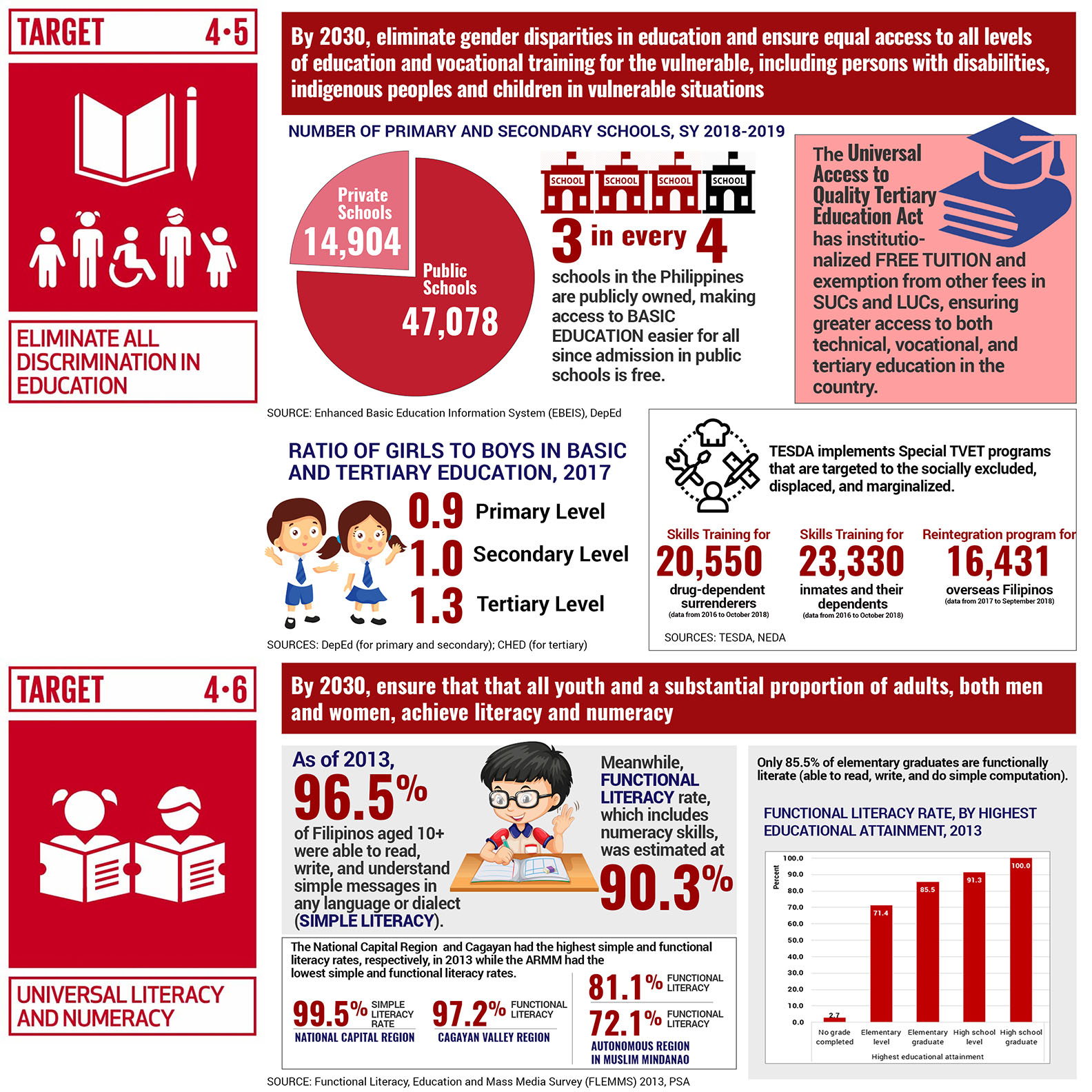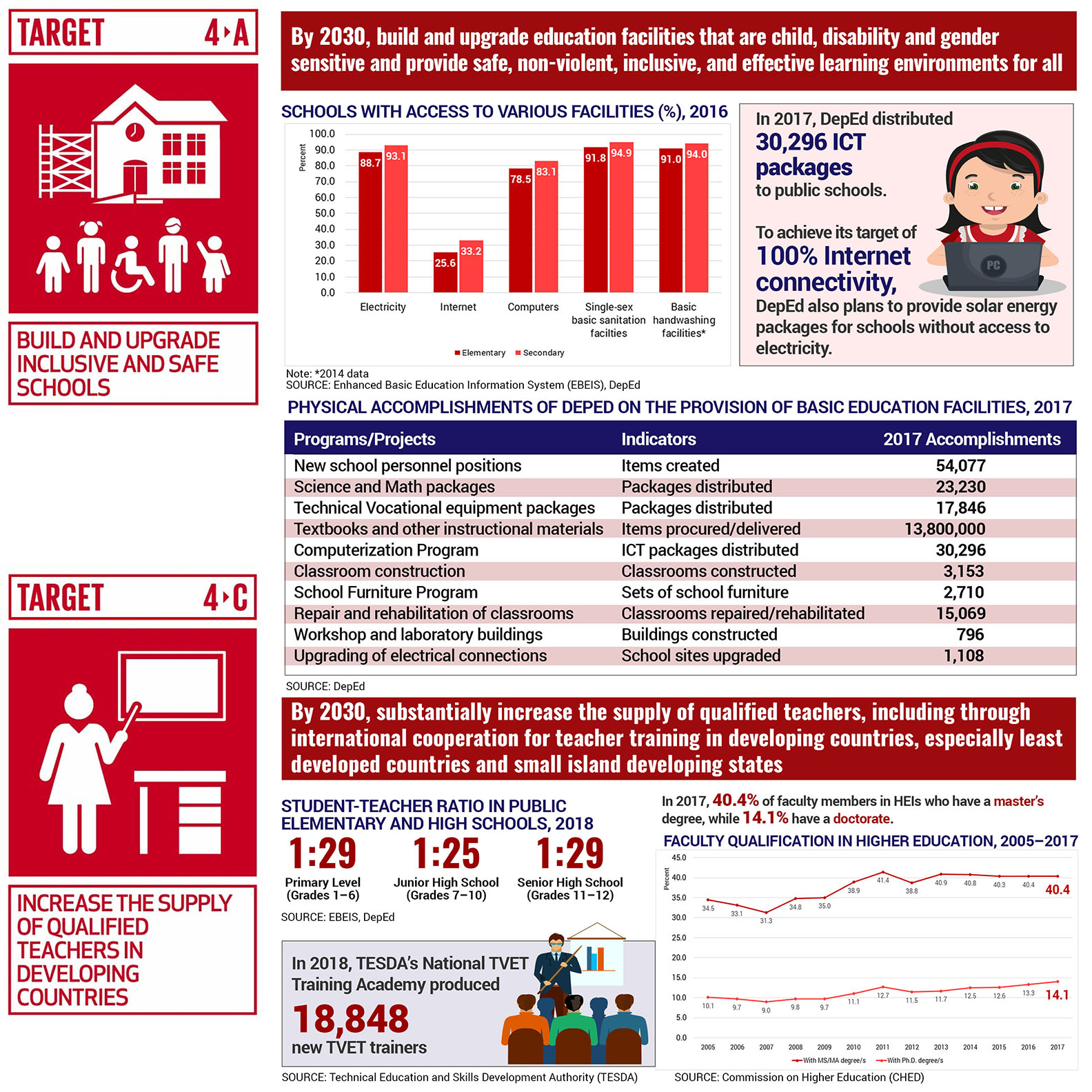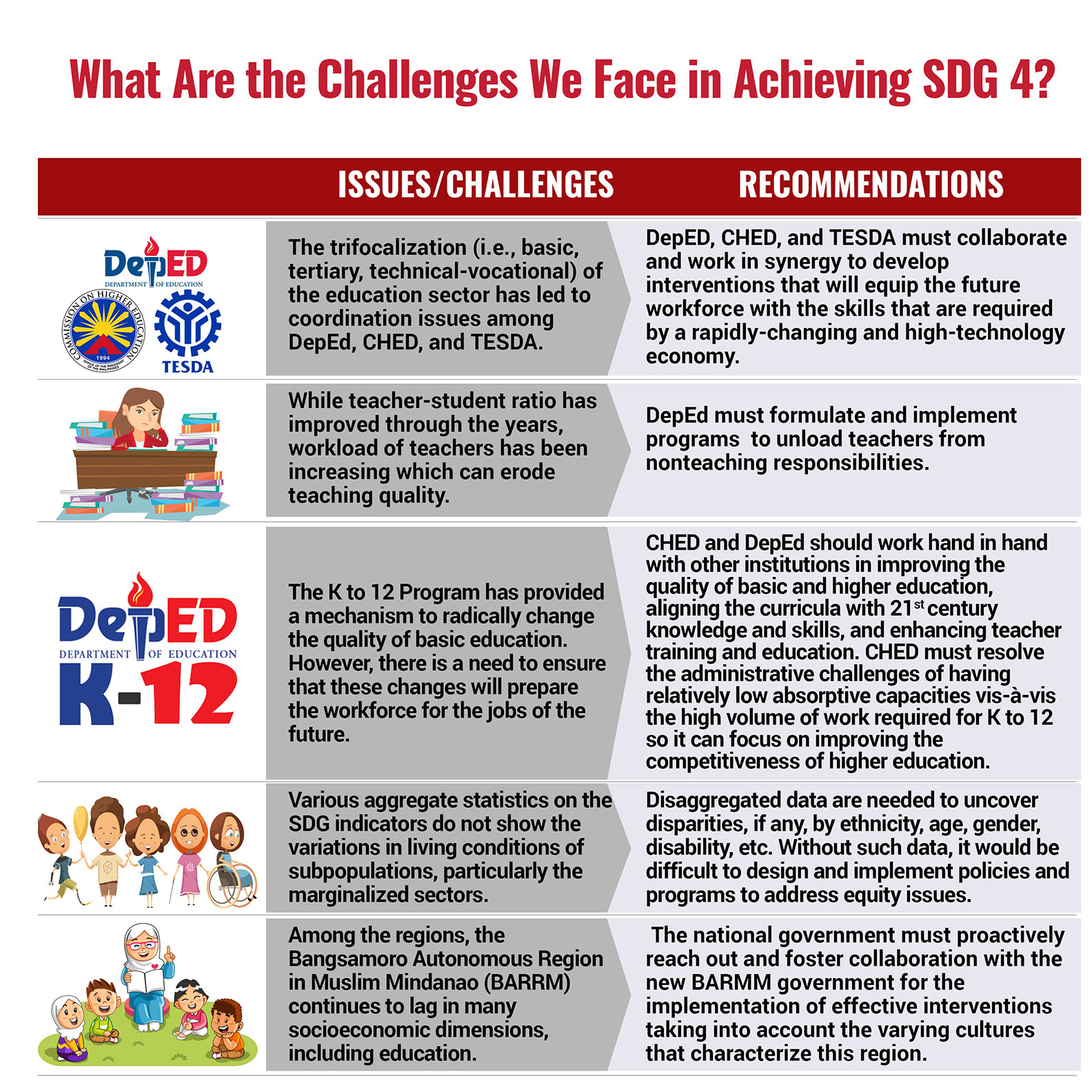Having trouble reading this email? View it in your browser. |
||||
 |
||||
|
||||
BOOKS
From a distance, there is not much to improve in the Philippines' gender landscape. The country is 8th in the global ranking of gender parity and the only one in Asia to be included in the top 10. But the picture on the ground reveals persistent gender gaps in education, employment, and wages. They can undermine the country's hard-won advances, long-term development aspirations, and international commitments if we continue to turn a blind eye on them. This very first book on gender and development of the Philippine Institute for Development Studies articulates the salient challenges confronting men and women today. It features research studies on the apparent lag in the education of boys, the gender differences in educational mobility, the important roles of housework in the economy, the effects of nonmarket work such as housework on labor market participation, and the gender pay gap in agriculture. This volume will hopefully widen the public's understanding of these gender issues and stimulate our policymakers to reflect on the evidence and recommendations. Click here to download the book. PIDS EPM 2018-2019: Understanding the New Globalization This issue of the Economic Policy Monitor (EPM) focuses on the diverse challenges brought by the New Globalization or Globalization 4.0, a period characterized by volatility, uncertainty, complexity, and ambiguity. It specifically looks at issues on global trade restructuring, worsening inequality, challenges to the provision of global public goods, and weakening of social cohesion and trust. It also assesses the country’s economic performance in 2018 and looks at the prospects for 2019–2020. It also provides policy updates on poverty reduction; women; health; education; labor and employment; housing; agriculture; environmental protection, forestry, and mining; energy; industry; services; and fiscal policy. Click here to download the publication.
RESEARCH PAPER SERIES RPS 2019-06: Facilitating Structural Transformation through Product Space Analysis: This research assesses the sophistication content of the country's current export portfolio and identifies products that result in a more diversified and high value-added mix of export commodities. Using some metrics from the product space, the paper finds that the average sophistication of products included in the country's export basket has barely improved from 1995 to 2014. It has remained lower than the average sophistication content of exports in the world market. The paper also finds that some of the products in the country's existing export basket has potential forward linkages to goods with relatively higher sophistication content, which in turn has potential linkages to even more sophisticated goods. However, transformation does not happen overnight and requires well-thought-out policies, plans, and priorities. To this end, the paper advocates the implementation of measures outlined in the Philippine Export Development Plan. It also identifies other potential actions toward human capital development, innovations, and infrastructure programs. Click here to download the publication. RPS 2019-05: Obstacles of Philippine SMEs' Participation in Global Value Chains Small and medium enterprises (SMEs) play an important role in the economy of many developing countries. In the Philippines, SMEs, including microbusinesses, account for 99.5 percent of firms and 63.2 percent of employment. However, this sector remains much less productive than their large counterparts. One way to help SMEs achieve higher productivity is to connect them to global value chains (GVCs). There are, however, a number of obstacles that make participating in GVCs difficult for SMEs. This paper attempts to determine the challenges as well as the enablers of connecting SMEs to GVCs. Findings indicate that Philippine SMEs are weakly linked to GVCs. The challenges and enablers can be grouped into five themes: (1) competition among countries in Southeast and East Asia; (2) international standards, regulatory requirements, and local institutions; (3) role of the government and institutions; (4) adapting to changes in international market demand and input supply; and (5) entrepreneurial mindset and skills. Click here to download the publication.
DEVELOPMENT RESEARCH NEWS DRN 2019 Vol. 37 No. 4: Poor global health financing hurts PH, rest of ASEAN The last issue of the Development Research News this 2019 features the highlights of the fifth Annual Public Policy Conference (APPC), zeroing in on the challenges related to the emerging New Globalization, also known as Globalization 4.0. The banner article specifically captures one of the key messages of the APPC, that is, the Philippines, together with the rest of middle-income countries, is under threat due to poor investments in global health. Also included are PIDS studies on housing, rice tariffication, small and medium enterprises, and senior citizens. Completing this issue is an article on smart cities, which can be a potent tool to address the issues arising with the advent of the New Globalization. Click here to download the newsletter.
POLICY NOTE PN 2019-12: Improving Human Resource through Mutual Recognition in ASEAN This Policy Note reviews mutual recognition arrangements (MRAs) facilitating the movement of skilled labor within the Association of Southeast Asian Nations (ASEAN) and provides an alternative lens in analyzing the mobility of skilled workers in ASEAN. Among others, it finds that while MRAs have inspired continuous improvement of professional competencies to be at par with the international competition, benchmarking of best practices is lacking. Mobility of professionals, in reality, may not ensue because nearly every country has visa, residence, and work permit restrictions, which can impede the movement of professionals to country locations where they are needed. There is hesitation among ASEAN member-states to give up their domestic regulation and nationally defined standards toward accrediting and licensing professionals. Hence, there is a need to reform domestic regulations to liberalize highly restrictive professions. For ASEAN to realize free trade in services, member-states are urged to harmonize their regulatory frameworks in order to have convergence of regulations, establish a harmonized and streamlined process of identifying the training needs and addressing the competency gaps of professionals, and promote a multistakeholder approach to curriculum design and quality control. Click here to download the policy note.
DISCUSSION PAPERS DP 2019-35: Perception survey in the Philippines on APEC DP 2019-34: Assessing the Alignment of Philippine Higher Education with the Emerging Demands DP 2019-33: JPEPA, a Decade After: Evaluating the Effects in Philippine Exports DP 2019-32: Who Are the Health Workers and Where Are They? Revealed Preferences DP 2019-31: Situation Analysis of ECCD-F1KD Initiatives in Selected UNICEF-KOICA Provinces DP 2019-30: Situation Analysis of ECCD-F1KD Initiatives in the Province of Samar DP 2019-29: ECCD-F1KD Situation Analysis in Selected KOICA-UNICEF Municipalities in Northern Samar DP 2019-28: Situational Analysis of Distal Factors Affecting Early Childhood Care and Development DP 2019-27: Impact of Government Incentive on MSME Innovation DP 2019-26: Philippine Graduate Tracer Study 4 DP 2019-25: Regional Analysis of the Philippine Services Sector by Francis Mark A. Quimba and Sylwyn C. Calizo Jr. DP 2019-23: Financing Universal Health Care in an Ageing Philippines DP 2019-22: Answering Critical Questions on Mining in the Philippines: Phase 2 DP 2019-21: Too Early, Too Late: Timeliness of Child Vaccination in the Philippines DP 2019-20: Socioeconomic Profile of Sustainable Livelihood Program Participants: DP 2019-19: Performance of Philippine Services Trade: An Update DP 2019-18: Assessment of the Philippine Local Government Planning and Budgeting Framework DP 2019-17: Philippine Statistical System in the Wake of the Emerging Data Revolution and Digitization DP 2019-16: Welfare Impacts of Rice Tariffication DP 2019-15: Process Evaluation of the Performance-Based Bonus (PBB) Scheme DP 2019-14: Assessment of the Free Irrigation Service Act DP 2019-13: Status of Senior High School Implementation: A Process Evaluation DP 2019-12: Assessing the Readiness of Filipino MRA-supported Professions To Participate |
December 12, 2019, 9AM–5PM
-----------------------------------------
The Philippine Journal of Development is a professional journal published by the Philippine Institute for Development Studies. It accepts papers that examine key issues in development and have strong relevance to policy development. As a multidisciplinary social science journal, it accepts papers in the fields of economics, political science, public administration, sociology, and other related disciplines. It considers papers that have strong policy implications on national or international concerns, particularly development issues in the Asia-Pacific region. CLICK HERE for the guidelines in the preparation of articles. Submissions and inquiries may be sent to PJD@mail.pids.gov.ph. |
|||
Efforts should focus on accelerating the compensation for farmers who are affected by the Rice Tariffication Law.
Trade deficit in the Philippines is quite alarming, said Executive Director Ma. Corazon Dichosa of the Board of Investments (BoI), an attached agency of the Department of Trade and Industry (DTI).
Keeping up with the demands of the New Globalization involves ensuring that Filipinos are equipped with the necessary skills as early as possible. | ||||
POLICY ISSUE AT A GLANCE How is the Philippines faring in SDG achievement? Goal 4: Quality Education Goal 4 of the United Nations (UN) Sustainable Development Goals (SDGs) aims to “ensure inclusive and equitable quality education and promote lifelong learning opportunities for all”. UN member-states, including the Philippines, committed to conduct regular and inclusive reviews of their progress at the national and sub-national levels. This infographic is based on PIDS Discussion Paper Series No. 2019-10 titled The Philippines’ Voluntary National Review on the Sustainable Development Goals written by Celia Reyes, Jose Ramon Albert, Aubrey Tabuga, Arkin Arboneda, Jana Flor Vizmanos, and Carlos Cabaero. The first author is president, the second author is senior research fellow, the third author is research fellow, the fourth and fifth authors are research specialists, and the sixth author is research analyst of PIDS. To view in actual size, visit the PIDS website or the PIDS Facebook page.
FACT FRIDAY The Pantawid Pamilyang Pilipino Program (4Ps) is the Philippine government’s primary poverty alleviation initiative. What did PIDS studies find about the 4Ps so far? Watch the latest #PIDSFactFriday video below.
Like us on Facebook for more #PIDSFactFriday issues. |
||||
Need help? Have feedback? Feel free to contact us. © 2018 Philippine Institute for Development Studies.
|
||||
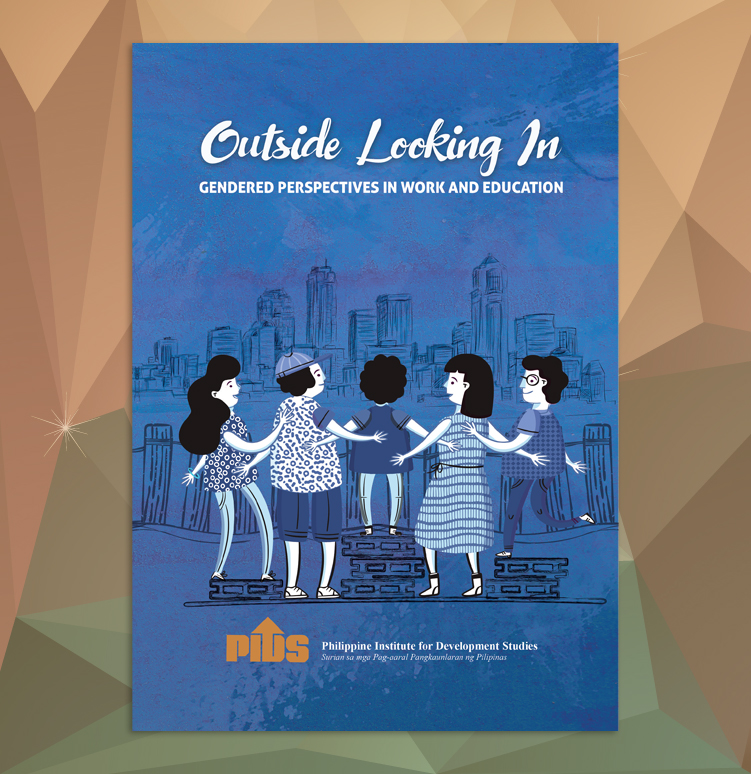
.jpg)
